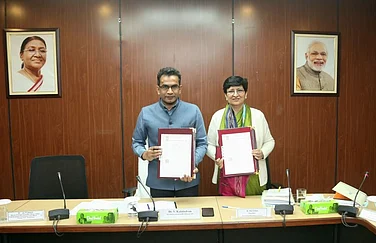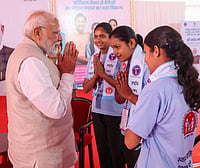The World Health Organization (WHO) has issued urgent guidance to help countries navigate a looming global health crisis, as external funding for health is projected to drop by 30–40% in 2025 compared with 2023. The sharp shortfall is already threatening essential services—including vaccinations, maternal care, and disease surveillance—especially in low- and middle-income countries.
The guidance ‘Responding to the health financing emergency: immediate measures and longer-term shifts’ provides a slew of policy options for countries to cope with the sudden financing shocks and bolster efforts to mobilize and implement sufficient and sustainable financing for national health systems
“Unplanned aid cuts have already cost lives and threatened hard-won health gains,” said Dr. Tedros Adhanom Ghebreyesus, WHO Director-General.
The crisis follows the United States — WHO’s largest donor — freezing and withdrawing funds, leaving the agency facing a shortfall of nearly USD 600 million. The cuts have already affected global efforts in HIV treatment, polio eradication, and emergency response.
The WHO has emphasized that the crisis also presents an opportunity for countries to reduce dependency on external aid and strengthen domestic health financing.
The guidance emphasizes the need for countries to cushion the immediate impact of reductions in foreign health assistance and to adapt to a new era of constrained external funding.
Key policy recommendations include prioritizing health services accessed by the poorest, protecting health budgets and essential services, and improving efficiency through better procurement, reduced overheads, and strategic purchasing.
It also stresses the integration of externally funded or disease-specific programs into comprehensive primary health care (PHC)-based delivery models and the use of health technology assessments to prioritize services and products that deliver the greatest health impact per dollar spent.
To support countries, WHO and its partners will provide technical assistance, data analysis, and peer learning through platforms like the upcoming UHC Knowledge Hub. It will be launched in partnership with Japan and the World Bank in December 2025.
“Even in the face of severe cuts, strategic planning and smart allocation can protect the most vulnerable and strengthen health systems for the long term,” Dr. Tedros said in a statement here.
WHO survey data from 108 LMICs collected in March 2025 indicate that funding cuts have reduced critical services including maternal care, vaccination, health emergency preparedness and response, and disease surveillance by up to 70% in some countries. More than 50 countries have reported job losses among health and care workers, along with major disruptions to health worker training programmes, as per the survey.



























